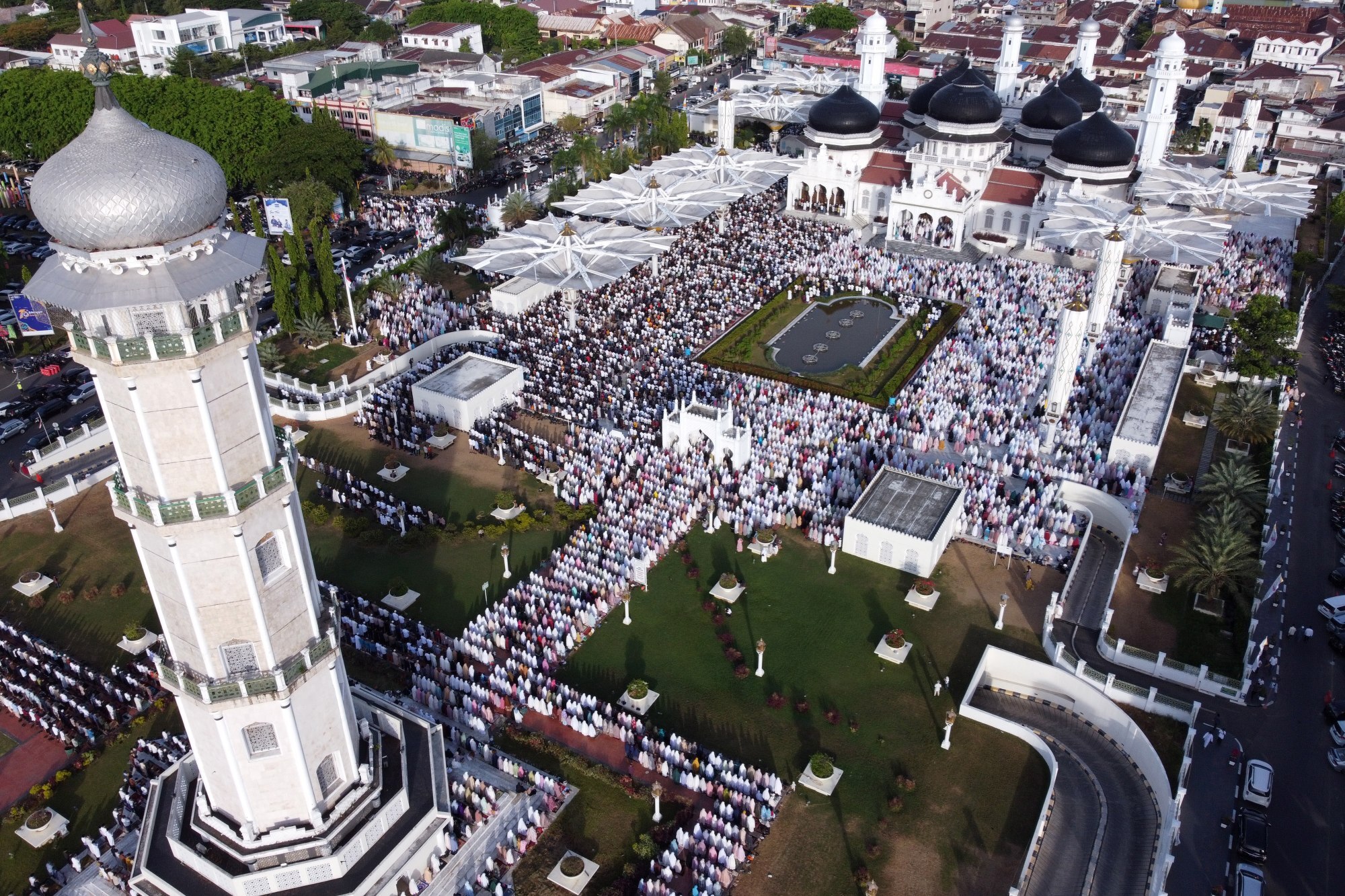
Asia’s Muslims celebrate 1st Eid after Covid curbs eased: ‘Words can’t describe how happy I am’
- Millions of Indonesians rejoiced at the return of the tradition of homecoming after two years, as Malaysian Muslims filled bazaars and shopping malls
- For others, the festivities were dampened by conflict and economic hardship – with India’s Muslims reeling from vilification by hardline Hindu nationalists
Against that backdrop, many are still determined to enjoy Eid, which began on Monday in many Muslim-majority countries and marks the end of the Islamic fasting month of Ramadan, amid an easing of coronavirus restrictions in their countries. For others, the festivities have been dampened by conflict and economic hardship.

“Words can’t describe how happy I am today after two years we were separated by pandemic. Today we can do Eid prayer together again,” said Epi Tanjung after he and his wife worshipped at another Jakarta mosque. “Hopefully all of this will make us more faithful.”
‘This is too sad’: virus stifles Eid celebrations for Asia’s Muslims
Muslims follow a lunar calendar, and methodologies, including moon sighting, can lead to different countries – or Muslim communities – declaring the start of Eid on different days.
Muslim preachers cautioned the faithful to remain vigilant during Eid.

Indian Muslims “are proactively preparing themselves to deal with the worst,” said Ovais Sultan Khan, a rights activist. “Nothing is as it used to be for Muslims in India, including the Eid.”
Still, many Muslims elsewhere rejoiced in reviving rituals disrupted by pandemic restrictions.
India’s ‘anti-Romeo’ squads: protecting women or targeting Muslims?
Millions of Indonesians have crammed into trains, ferries and buses ahead of Eid as they poured out of major cities to celebrate with their families in villages in the world’s most populous Muslim-majority country. The return of the tradition of homecoming caused great excitement after two years of subdued festivities due to pandemic restrictions.
“The longing for [the] Eid celebration in a normal way has finally been relieved today although the pandemic has not yet ended,” said Hadiyul Umam, a resident of Jakarta.
Many in the capital flocked to shopping centres to buy clothes, shoes and confectionery before the holiday despite pandemic warnings and food price surges.

“It’s a blessing that we can now go back to celebrate,” said sales manager Fairuz Mohamad Talib, who works in Kuala Lumpur. His family will celebrate at his wife’s village after two years of being apart due to earlier travel curbs.
There, he said, they will visit neighbours after the Eid prayers, chanting praises of Prophet Muhammad, and sharing food at each stop.
“It’s not about feasting but about getting together,” he said ahead of the holiday. With Covid-19 still on his mind, the family will take precautions such as wearing masks during visits. “There will be no handshakes, just fist bumps.”

